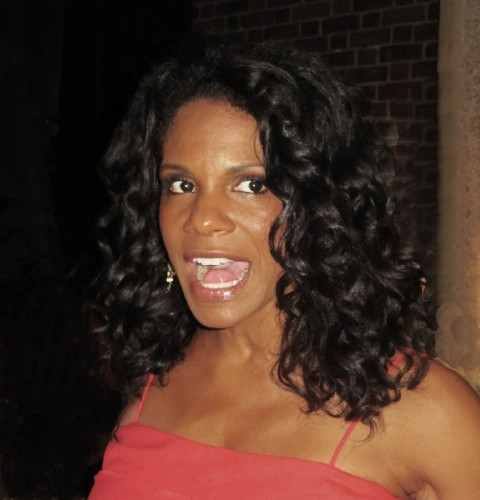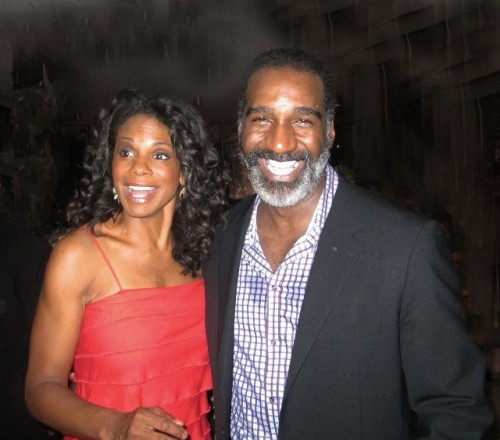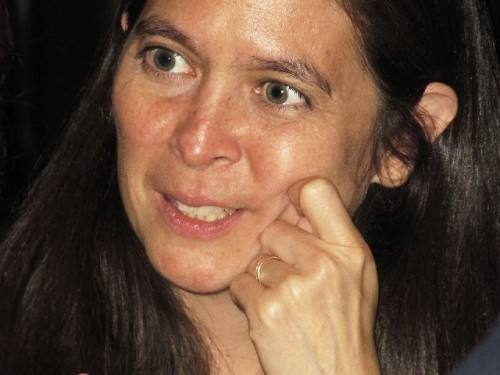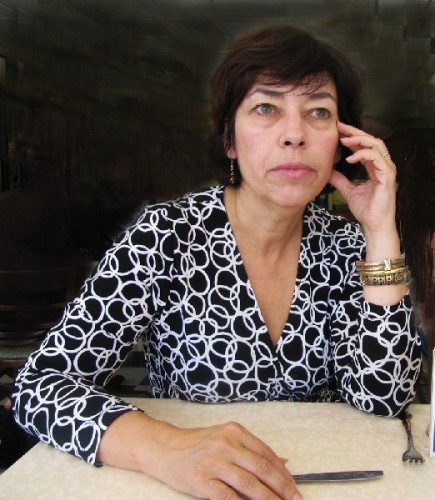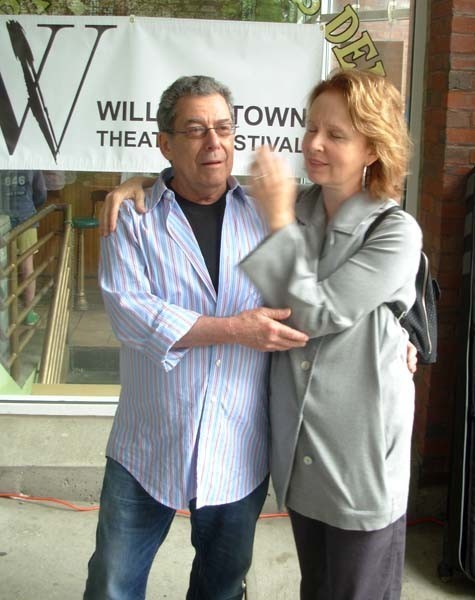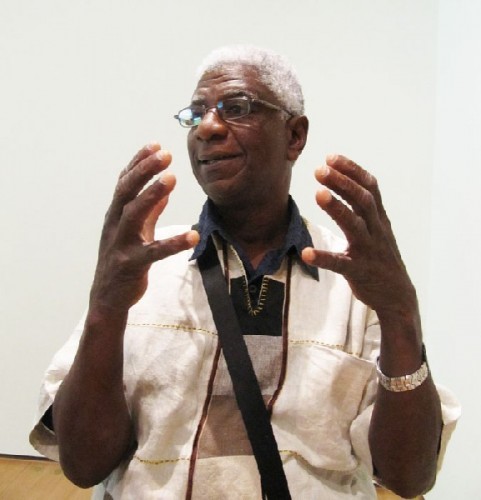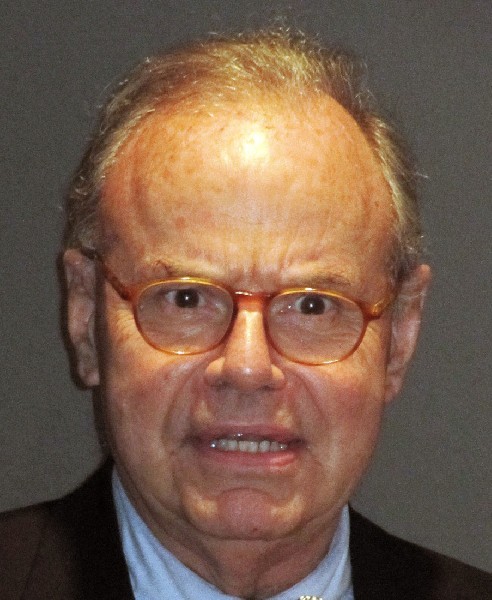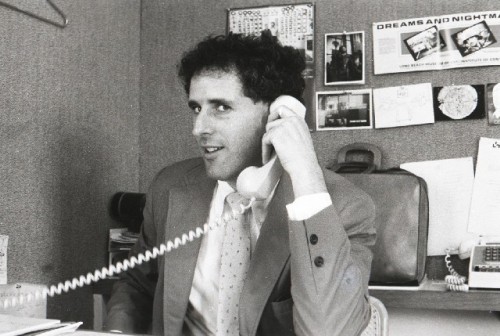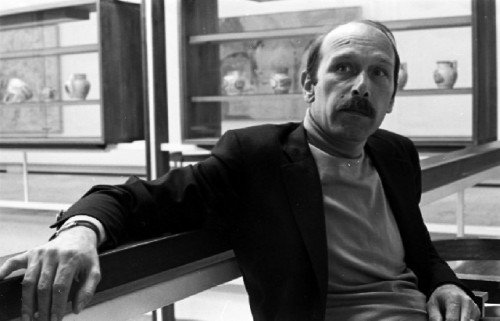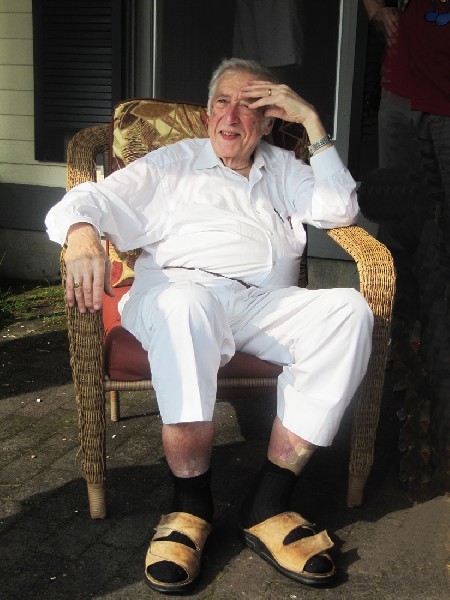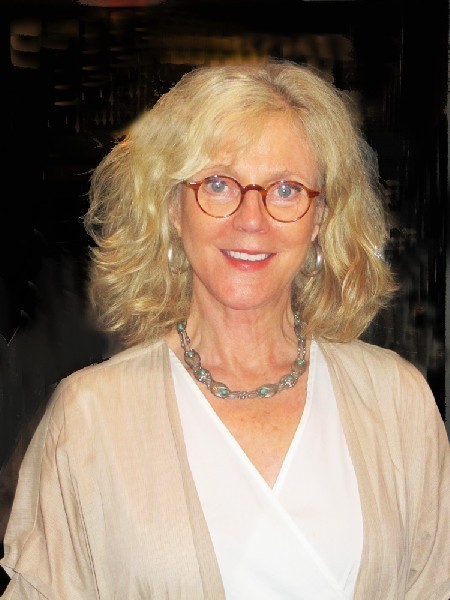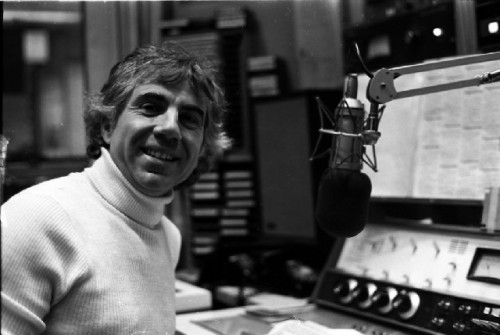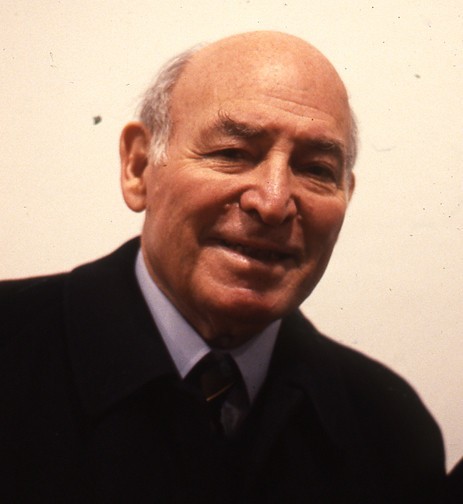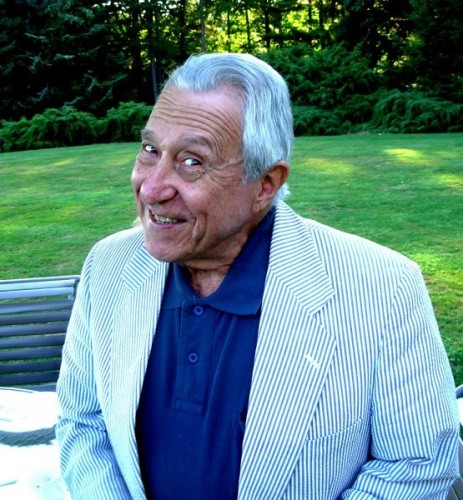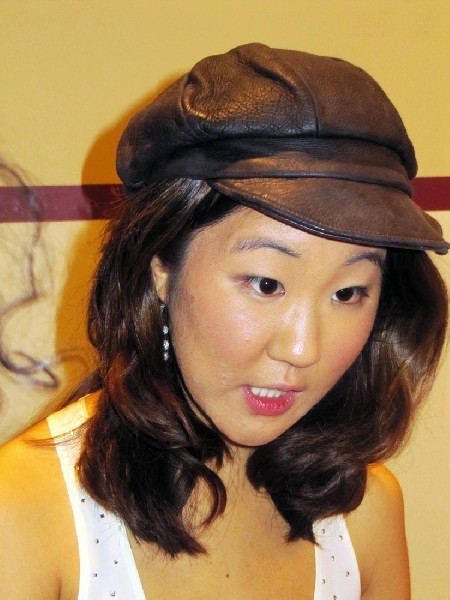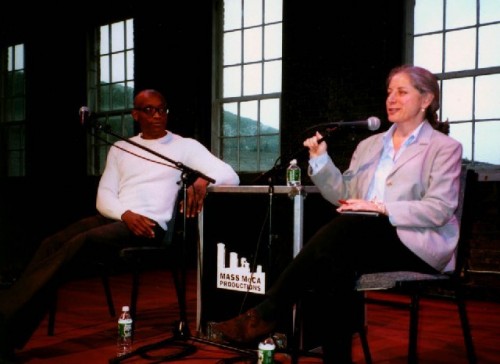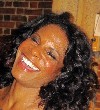Janus the Two Faced Roman God
Looking at the Arts Behind and Ahead
By: Charles Giuliano - Jan 02, 2012
Writing arts criticism is a matter of opinion. As they say, everyone has one.
It is more about trust than an exact science.
The manner in which we get the news and absorb information has changed dramatically.
Yesterday, during a lively New Year’s Day brunch my friend Robert Henriquez, a former associate of CBS News, reminded us of a signifier that marked the turning point in the war with Vietnam.
He quoted President Lyndon Johnson as saying that regarding public opinion of an unpopular “conflict” or “police action” in Southeast Asia he had lost the trust and support of Walter Cronkite.
As anchor of the CBS Evening News we experienced the greatest events of the era- landing on the Moon, the Kennedy assassination, the daily body count in Vietnam- through the warm, paternalistic tones of Cronkite.
He signed off with “And that’s the way it is.” Before him there was Edward R. Murrow with “Good night and good luck.”
A consummate stoic and objective reporter Cronkite famously cracked when he announced to the nation that President Kennedy was pronounced dead. In a flash of grief that echoed from Coast to Coast the American people choked with him.
Today there is no such hegemony. What we read in a daily paper, or view on the evening news, is for the most part a rehash with quotes and sound bites of what we already know. There is no longer a 24 hour news cycle. For breaking news there used to be CNN. Now it is superseded by the social networking of Facebook and Twitter.
Formerly, reviews in major publications like The New York Times and big city daily papers could make or break a show. There were cast parties where actors waited for the reviews to come out after midnight. Not anymore. The Berkshire Eagle, for example, generally posts five days after opening night. By then who gives a fig.
Since Broadway plays normally have weeks of previews by opening night, for many shows, the official reviews are a moot point.
During the first preview of the troubled Spiderman, for example, some audience members were tweeting before the curtain came down. Literally, it took months for the Times review to appear as producers continued to work to save the show. Some theatres are now assigning designated areas for Tweeters and Texters. Omg. Omg.
This first week of January marks the time of year when critics post their annual lists of best and worst.
It is a matter of instant gratification for critics and their readers.
Kind of like a report card for the arts.
There is an assumption on the part of the critic that he or she is an expert who takes the craft seriously and knows more than the general public. If you have seen the shows you get to wade in on the dialogue.
Some aspects of lists make sense. Yes, we agree that this particular show was marvelous and that was just awful. Then there are examples of what we regard as black being praised as white.
Here in the Berkshires we don’t get to see many first run movies. But we scour the annual lists to add titles to our Netflix queue. Hopefully, we will see enough of them not to feel out of the loop during the Oscar broadcast. This year hosted by the always fabulous Billy Crystal.
This past season I thought that Ten Cents a Dance at Wiliamstown Theatre Festival, an ersatz musical pastiche in which the singers also played instruments which they lugged about with varying degrees of ineptitude, was just dreadful.
My review was a scorcher as was that of Peter Bergman for the weekly Advocate and on line Berkshire Bright Focus. He caught heat from a newly ensconced publisher who allegedly took calls from associates of WTF.
Most legitimate publications attempt to establish firewalls between editorial and advertising. I have had my share of taking heat from bozo, chickenshit publishers.
Imagine the shock and surprise when Jeffrey Borak in his year end summary for the Berkshire Eagle singled out Ten Cents a Dance for copious praise. What a surprise. Well, not really.
Perhaps hedging his bets Borak assigned three of WTF’s productions to his list of worst productions of the season. Also on Borak’s list was the final production Seagull for Main Street Stage a community theatre which lost its lease in North Adams.
It was a wildly uneven production but not without merit. So much so that it made “the best of” list of Gail Burns for the on line Gail Sez.
By this time next week few will recall or much care about the annual lists. Like Janus, by then, we will cease looking back and anticipate a new season. Critics will start to mark up their calendars. During high season we are out an average of five nights a week. There are colleagues like Bergman and Burns who see, with matinees, as many as ten productions each week. That never ceases to amaze me. Hats off to them.
In addition to covering four major theatre companies we also attended Jacob’s Pillow six times last season and a number of evenings at Tanglewood. We also made trips to Boston and New York.
Often there are tough decisions and scheduling conflicts. We tried to see all five evenings of Tina packer and Nigel Gore in the seminal Women of Will at Shakespeare & Company. But we only managed three. One evening we arrived to find the theatre dark because a freak storm downed power lines. We never managed to reschedule that show.
Which is too often the case with S&Co. Their openings are erratic and marketing has been similarly inconsistent. Before the season starts, for example, you anticipate penciling in Thursday nights for WTF. Mostly Barrington Stage schedules early shows on Sundays. Openings at Berkshire Theatre Festival occur on Saturday night followed by great parties in the tent. Not to be missed.
Looking back at 2011 it would be disingenuous to create a best and worst list. Because of conflicts and other priorities there are shows that made the lists which we never got to. Through travel we saw shows that our Berkshire peers did not. Some of our most spectacular and challenging experiences were for music and dance. We endured the downpours of the Wilco Solid Sound Festival at Mass MoCA. Add to that the phenomenal Berkshire International Film Festival, and the small but stunning Williamstown Film Festival.
In the fine arts we covered the opening of the Linde Wing of Contemporary Art at the Museum of Fine Arts, El Anatsui at the Clark and de Kooning at MoMA.
Many critics make an effort to distance themselves from those they write about. I regard producers, directors, actors, musicians and artists as primary sources for insights into their craft and profession.
These in depth critical dialogues are an essential part of a learning process that is transparent, risky, and shared with the reader. Sitting with Mark St. Germain while he was working on The Best of Enemies for Barrington Stage was like a graduate level seminar on the craft of playwriting. There was a similar intensity in a long and complex dialogue with the director Mary Zimmerman about her production of Candide with Huntington Theatre Company.
At WTF there were ongoing dialogues with Jessica Hecht who played Blanche in Streetcar Named Desire and Nicholas Martin a hoot directing She Stoops to Conquer. Nicky in particular has always been generous and amusing in sharing a wealth of knowledge and insights.
For over the top, gonzo, flat out outrageousness we went one on one with Tommy Tune and kept up with the take no prisoners wit of Lewis Black. Just surviving those experiences required formidable linguistic legerdemain.
We discussed the state of criticism with Larry Murray of Berkshire on Stage. And with Boston Phoenix art critic Greg Cook.
Looking back at 2011 there was an embarrassment of riches. As Candide would say “This is the best of all possible worlds.” Now and then I squirmed and fidgeted, looked at my watch, shifted from cheek to cheek, and endured the agony of a turgid performance. As Sartre declared “Hell is other people.” Or, perhaps, a night of bad theatre. Worse when you pay for it as was the case with Mountaintop on Broadway.
What follows is a summary of insights and highlights.
Berkshire Theatre Companies
By far the most consistent and absorbing program was assembled by Julianne Boyd for Barrington Stage Company. As a prequel the season was jump started with the riveting one man show Zero Hour. The Fourth of July snapped, crackled and popped with Guys and Dolls. There would be two more musicals The Game which was exactly that and the truly awful Mormons, Mothers and Monsters. A new work that makes us rethink the abilities of Bill Finn. In 2010 he midwifed Pool Boy which only Larry Murray of Berkshire On Stage seemed to love. Barrington gave us the most important new play of the year St. Germain’s The Best of Enemies as well as a terrific production of Asher Lev.
Barrington also has the only qualified PR director of the Berkshire theatre companies. Charlie Siedenburg is unique in being truly connected. He makes calls, returns calls promptly, answers questions, and makes connections. Oh, if only the other companies would learn by example. Too often the bottom line is none of the above.
It was a tough year for Kate Maguire who took on the monumental task of merging Berkshire Theatre Festival in Stockbridge with the Colonial Theatre in Pittsfield as the new umbrella entity Berkshire Theatre Group.
There were growing pains but also brilliant flashes that speak well for the coming season. Casting Randy Harrison to star in Tommy was truly inspired. But Maguire undermined that by opening the show after the boffo Holiday weekend and ending a short run just as momentum was building. Sylvia at BTF was the comedy hit of the season. Berkshire native Karen Allen missed the mark with her first assignment as a professional director making a muddle of the dated Moonchildren. Maguire finished on a high note by casting James Taylor and family in A Christmas Carol at the Colonial. It played to standing room only. Because it was off limits for reviews we never saw it.
The other aspect of the merger, programming the Colonial with one nighters, is also steadily improving. There is a bold experiment, The Garage, which features a soft rock cabaret in the lobby on Thursday nights.
We only managed to sample Shakespeare & Company. From what we saw of Women of Will Tina Packer is a national treasure. She had a superb and droll partner in Nigel Gore. There were wonderful individual performances in Memory of Water but the play was a mess. Ditto War of the Worlds. We were tempted to leave after the first act but the second act was a smidgen better. Romeo and Juliet was a bore and a snore. Sorry, we never saw As You Like It which colleagues reviewed brilliantly. The one night benefit Broadway in the Berkshires was absolutely fabulous.
We note with sadness the passing of benefactor Elayne P. Bernstein. She was a great supporter of S&Co. which has a theatre named for her.
In her first season as artistic director of Williamstown Theatre Festival Jenny Gersten failed to deliver. The season began and ended with natural disasters. The roof collapsed on the set shop. Dangerously close to opening night the entire operation, including decades worth of props, were moved from the condemned Delftree Mill in North Adams to the Blackington Mill at the other end of town. The fall flooding accompanying a hurricane ruined props stored in a basement area.
Depending on whom you talked with Gersten’s season was fresh and exciting or bloody awful. While the Berkshire media mostly panned the shows there were raves in the New York Times, Wall Street Journal, Boston Globe and Albany Times Union. These reviews were blown up as lobby billboards. Perhaps to drown out the pans by local know nothings. Also WTF was Twittering and Tweeting its way into new marketing strategies. The twenty something PR interns often missed the boat on posting production shots by opening night or following through on interview requests. There were weekly PR and marketing gaffs.
In the smaller Nikos Theatre, for example, Bergman wrote about not being able to see a third of the stage from his oblique seating for A Doll’s House. The same was true for us but there were other, more serious issues with a messy production of the Ibsen classic.
Similarly, I missed the point of A Streetcar Named Desire. It was insightful to have the opportunity to discuss my concerns with Jessica Hecht. It greatly broadened the scope of what to look for in a new interpretation.
On the Main Stage there was a huge and stunning set for Three Hotels which was out of scale for a slight little play by two actors with three monologues. Everyone agreed it would have been a better fit for the more intimate Nikos Stage.
Mostly I found Touch(ed) to be slow and tedious. The ersatz comedy was neither funny or insightful. But a shrink friend who saw it told me that he found it as accurate and intriguing as a case study.
As previously stated the Martin production of She Stoops to Conquer was just hilarious. For some critics it was way too over the top but I never stopped laughing. There was a lot to like about Lewis Black’s One Slight Hitch which has been a work in progress for some twenty plus years.
Let us hope that Gersten comes back with a terrific program for her second season.
Musicals
The week before The Gershwin's Porgy and Bess opened at American Repertory Theatre there was a concert version at Tanglewood. Overall, with the notable exception of Audra McDonald, we heard better music at Tanglewood. The A.R.T. production was flawed and problematic but on many levels utterly awesome.
You would have to flip a coin to decide between Barrington’s Guys and Dolls or Tommy at the Colonial. What a fabulous conundrum.
At the Huntington Mary Zimmerman delivered a dazzling and clever production of Candide a notably challenging and unforgiving work by Leonard Bernstein.
There is nothing like Sondheim. We were fortunate to see Bernadette Peters on Broadway in his masterpiece Follies.
Jazz
The Tanglewood Jazz Festival entailed many highlight including the archival Mingus Band with a segment conducted by Gunther Schuller. An evening of three women Angelique Kidjo, Dianne Reeves, and Lizz Wright in Sing the Truth was truly stunning. We spoke with Blythe Danner about her festival appearance and memories of pianist Bill Evans.
We engaged in dialogues with Newport Jazz festival founder George Wein. The voice of the BSO Ron Della Chiesa. And Jazz entrepreneur Freddy Taylor.
At the Colonial as the headliner of the Pittsfield Jazz Festival we saw the torch passed from the generation of veteran Phil Woods to the prodigy Grace Kelly. It was a titubating evening of flat out bop. Kelly proved to have truly amazing chops.
Rock
Praise the Lord for Jeff Tweedy and Wilco. We were soaked to the skin after the opening night of the Solid Sound Festival. We returned with dry clothes and stuck it out through the closing set by the Levon Helm big band. Looking forward to more next season.
Tanglewood hosted Steely Dan and Train. We enjoyed the former more than the latter.
On a cold winter night with snow piled miles high in Pittsfield we enjoyed an evening of Hot Tuna at the Colonial.
Fine Arts
The dominant exhibition of the year, decade, century, make that game, match, set was de Kooning at MoMA.
The Clark scored with El Anatsui.
The MFA opening of the Linde Wing of Contemporary Art conflated treasures and trash.
We posted interviews with Malcolm Rogers of the MFA, Michael Conforti of the Clark, David Ross, the former director of the Whitney Museum, Carl Belz, the former director of the Rose Art Museum and the artist, James Aponovich. We spoke at length with Denise Markonish about the ambitious survey of Canadian Art she is curating for Mass MoCA this summer.
Dance
We enjoyed two very different programs by the Mark Morris Dance Company at Tanglewood and Jacob’s Pillow.
The venerable Trisha Brown company continues to be challenging.
Some of the greatest memories of the season were fabulous nights at Jacob’s Pillow. There was the nuance and style of the Lar Lubovitch Company and a sizzling night of authentic Argentine Tango.
The truly unforgettable experiences, however, was 3e Étage: Soloists and Dancers of the Paris Opera Ballet. The degree of difficulty and athleticism of airborne leaps evoked memories of seeing Nureyev in his prime. That was combined with the amazing wit and humor of mime. It took dance to the stratosphere.
We spoke at length with artistic director, Ella Baff.
2012
As they say. Wait till next year. We’ll be there with two on the aisle.
Till then. Happy New Year.

